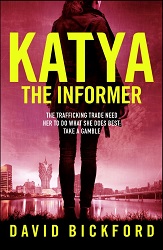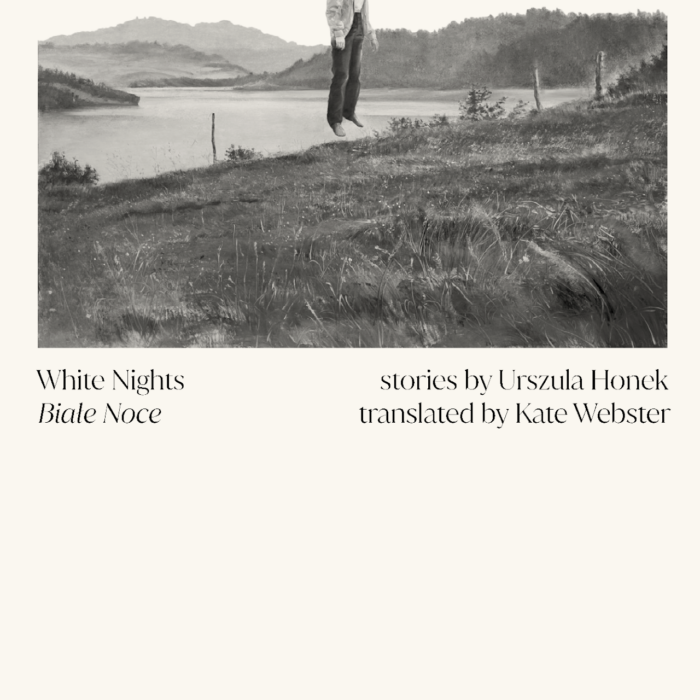You have no items in your cart. Want to get some nice things?
Go shopping
In Empty Houses by Brenda Navarro, two unnamed narrators alternately describe the circumstances around the kidnapping of a three-year-old child, but Daniel’s well-being is the last thing on either of their minds. Recently translated from Spanish by Sophie Hughes, the novel was originally published in 2018.
The first narrator is Daniel’s mother, who loses sight of him in a park while lamenting a breakup text from her lover. This is when the second narrator kidnaps Daniel. She renames the child Leonel but quickly learns there is much more to being a mother than she expected. Her vision is not far from the traditional: “What’s wrong with wanting to give love? I wanted to teach a little girl to be different from me, from my mother…” But Leonel has needs that she can’t begin to understand, and he desperately misses his own family.
Most of the novel takes place in the period after Daniel is kidnapped, as each narrator reflects on the events of her life that led to the kidnapping. Daniel’s mother considers whether she wanted to be a mother at all: “…some part of me still wanted to prove that I could take care of myself and my family. I don’t know why. I don’t know which social conventions or expectations foisted this desire on me; a desire that, in all honesty, I didn’t truly feel.” She wallows in self-pity over Daniel’s disappearance and the loss of her on-again-off-again boyfriend. She neglects her niece, Nagore – a girl who has suffered devastating losses of her own – and instead allows Nagore to mother her in the same way Nagore always mothered Daniel.
The second narrator explains her reasons for resorting to kidnap – her sadness that her boyfriend doesn’t want children, her abusive relationships, her struggle simply to survive: “I’m learning that we women have our place in the world, and there’s nothing we can do to change that.” She funds attempted border crossings, grieves the loss of her brother, and has spectacular fights with her boyfriend and mother.
This novel brims with sexual and physical abuse, psychological torment, death, and all-around suffering (content warning). But more than anything, this is a book about how life circumstances as well as unmet desire for children affects women. Books about the trials of motherhood and the politics of reproductive choice have become much more prevalent in the last decade. Novels such as Sheila Heti’s Motherhood, Sophie Mackintosh’s Blue Ticket and Leni Zumas’ Red Clocks confront the reader with questions of female bodily autonomy and maternal ambivalence. Meanwhile, nonfiction works like A Life’s Work by Rachel Cusk and Mothers by Jacqueline Rose take a critical look at mothers’ trials and how they are treated in society. These books have cast a shadow over the ideal image of mother and baby that shows the experience as peaceful and utterly joyful. Instead, they allow a realistic account of a truly challenging role.
But Empty Houses takes this new theme a leap forward, with a narrator who plainly states her antipathy toward motherhood and maternal responsibility, reflecting: “I’d never wanted to be a mother. To be a mother is the worst possible impulse a woman can have,” and “I wanted…not to let the maternal myth be perpetuated in me…not to give birth, because once they’re born, motherhood is for life.”
These sound like truly radical statements but are not, because as one narrator asks, “How could being a mother not terrify you?” Particularly in this novel, where both narrators suffer deeply as a result of their maternal roles, it is terrifying.
One of the key differences between these narrators, apart from fertility, is class. The kidnapper lives in a working-class neighbourhood of Mexico City, has an abusive boyfriend, and is struggling to build up her own business. Daniel’s mother, on the other hand, is divorced and makes no mention of a job. She spends her days in bed or in the park where Daniel went missing, and remarks several times on the lightness of Nagore and Daniel’s skin. While both women suffer in a patriarchal society, the kidnapper’s lower socioeconomic background has a grave impact on her life and maternal choices. Navarro has explained that she aims to address these issues in her writing. In an interview with The Platform, she said, “My relationship with writing…is fighting to have conversations with my colleagues about better rights, especially in my countries, Mexico and Spain.”
Access to money plays a huge role in the novel, and it cannot be denied that the same applies in life, since having children is an expensive endeavour. One of the critical points raised in this novel is how finances and class change society’s perception of women’s roles, and in turn, their rights. Daniel’s mother realises only after she becomes pregnant that she never wanted children, but because she is married and has money, she is expected to be happy with her pregnancy, as well as take on the responsibility of her motherless niece. Meanwhile, the second narrator is utterly broken after a miscarriage, and this is the impetus for Daniel’s kidnapping.
There is nary a mention of birth control in this novel, apart from the occasional reference to whether or not a man decides to use a condom. This is an interesting choice on the part of Navarro, who metaphorises the patriarchal nature of birth control access. The language is raw and vivid, sometimes painful to read. In this way, Empty Houses confronts some of the most important political issues facing women today, demonstrating the need for more choice for women and support for mothers, for the benefit of their children.
Time and again in this novel, Daniel wails not for his mother but for his cousin. Navarro seems to be telling us: Look how they suffer.
Empty Houses
By Brenda Navarro
Translated by Sophie Hughes
Daunt Books, 192 pages

About Monica Cardenas
Monica Cardenas is a writer living in the U.K. She holds a PhD in Creative Writing from Royal Holloway, University of London. Originally from Washington, D.C., she earned a BA in English from Wilkes University, Pennsylvania. Her novel-in-progress The Mother Law was longlisted for the Lucy Cavendish College Fiction Prize and runner-up in the Borough Press open submission competition. Her writing appears in Litro, Sad Girls Club Lit, and Catatonic Daughters.
- Web |
- More Posts(4)




